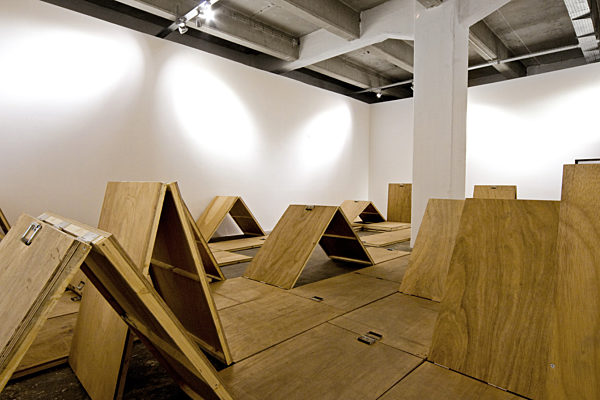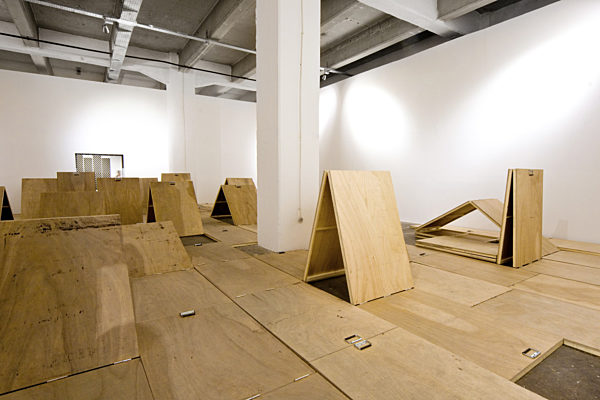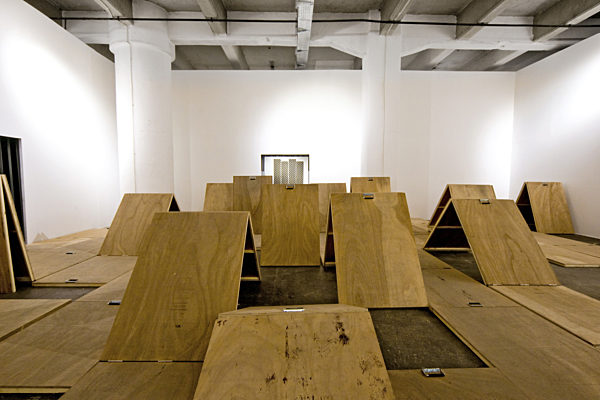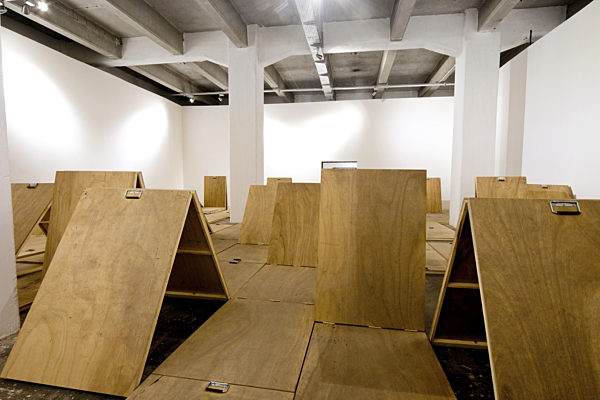Falha (Failure)
Renata Lucas
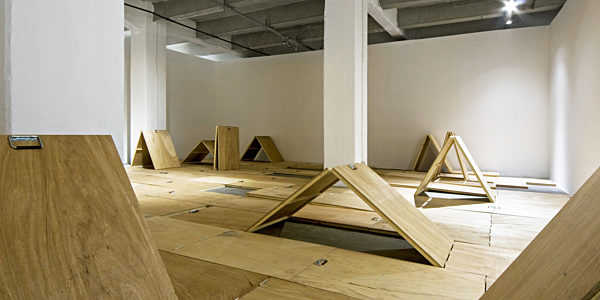
“Failure” evokes geological movements, the failures that may suddenly change the organizational sense of space, but it is also defeat. After all, the work is a monument that cannot sustain itself.
(Renata Lucas)
In Falha (Failure), the audience can reshape the space and create new paths, passages or obstacles by repositioning wooden panels. The installation consists of an articulated, portable, foldable wooden floor that can be opened and extended onto another area. It is a monument that does not stand still or upright, but is on the contrary flexible, adaptable, and unstable, like a moving ground. From the flat surface it is possible to erect corners, walls and volumes that not only requalify the function of the floor, but also change the configuration of the space, like a mobile architecture. Despite being an interactive structure, Falha is not a plaything. Changing its arrangement requires reasoning and some physical strength, and perhaps someone’s help.
Renata Lucas manipulates urban spaces and architecture to intensify the tension between inside and outside, public and private, past and present. Her practice is a critical interpretation of how our built environment determines actions, behavior and social relationships, and by extension, society’s dependency on the preservation of prescribed definitions of space, property and order. The artist’s work imagines a space where these barriers break down, where the possibility of deconstructing boundaries might result in a different social dynamic. By offering an alternative spatial imagination—one that brings into consideration malleability, manipulation and play—Lucas provokes the possibility of new subjective and collective engagement within our built environment. (Redcat)
2003/2019, installation, plywood, hinges, handles, site-specific dimensions




